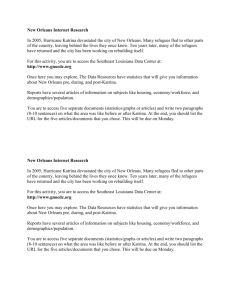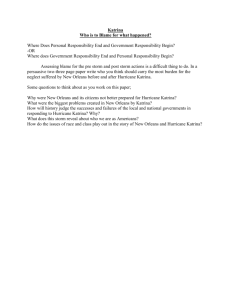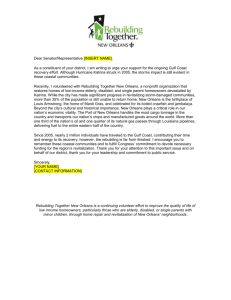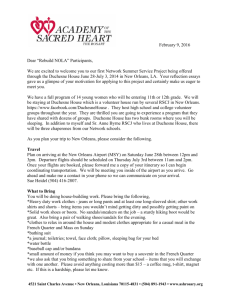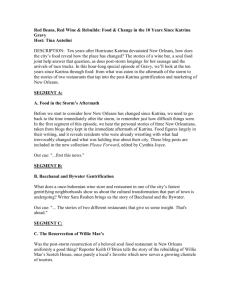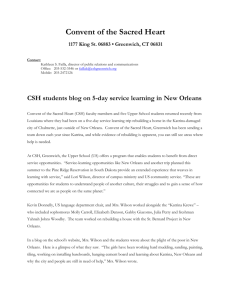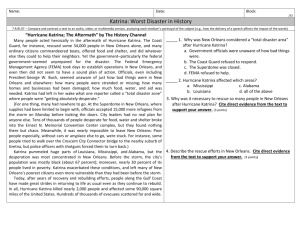Hurricane Katrina – Key Facts to Consider
advertisement
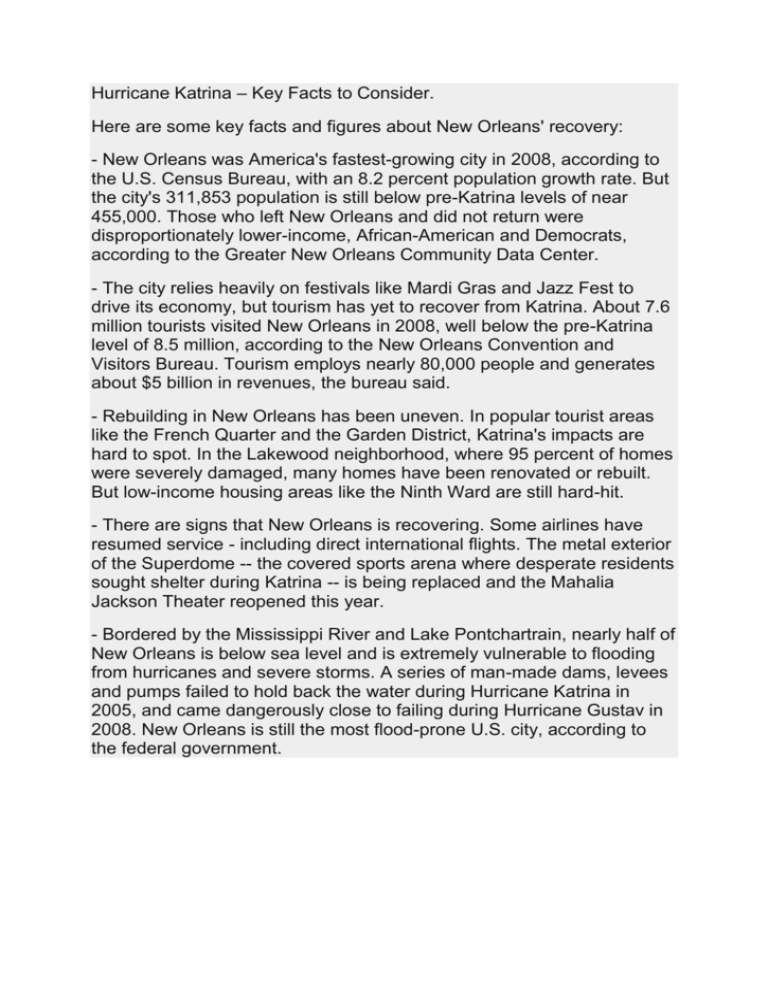
Hurricane Katrina – Key Facts to Consider. Here are some key facts and figures about New Orleans' recovery: - New Orleans was America's fastest-growing city in 2008, according to the U.S. Census Bureau, with an 8.2 percent population growth rate. But the city's 311,853 population is still below pre-Katrina levels of near 455,000. Those who left New Orleans and did not return were disproportionately lower-income, African-American and Democrats, according to the Greater New Orleans Community Data Center. - The city relies heavily on festivals like Mardi Gras and Jazz Fest to drive its economy, but tourism has yet to recover from Katrina. About 7.6 million tourists visited New Orleans in 2008, well below the pre-Katrina level of 8.5 million, according to the New Orleans Convention and Visitors Bureau. Tourism employs nearly 80,000 people and generates about $5 billion in revenues, the bureau said. - Rebuilding in New Orleans has been uneven. In popular tourist areas like the French Quarter and the Garden District, Katrina's impacts are hard to spot. In the Lakewood neighborhood, where 95 percent of homes were severely damaged, many homes have been renovated or rebuilt. But low-income housing areas like the Ninth Ward are still hard-hit. - There are signs that New Orleans is recovering. Some airlines have resumed service - including direct international flights. The metal exterior of the Superdome -- the covered sports arena where desperate residents sought shelter during Katrina -- is being replaced and the Mahalia Jackson Theater reopened this year. - Bordered by the Mississippi River and Lake Pontchartrain, nearly half of New Orleans is below sea level and is extremely vulnerable to flooding from hurricanes and severe storms. A series of man-made dams, levees and pumps failed to hold back the water during Hurricane Katrina in 2005, and came dangerously close to failing during Hurricane Gustav in 2008. New Orleans is still the most flood-prone U.S. city, according to the federal government.


